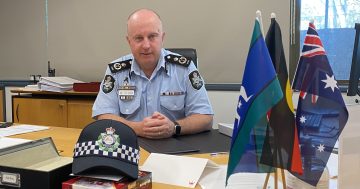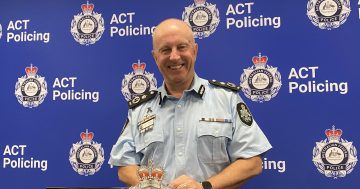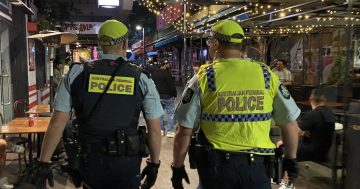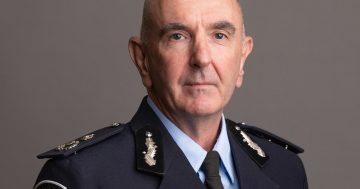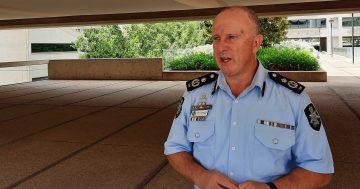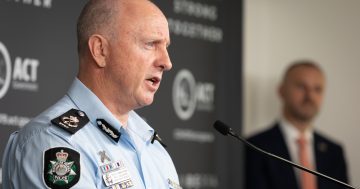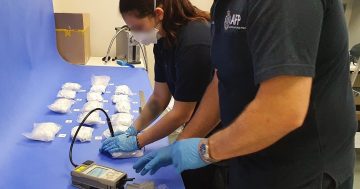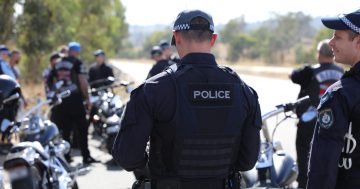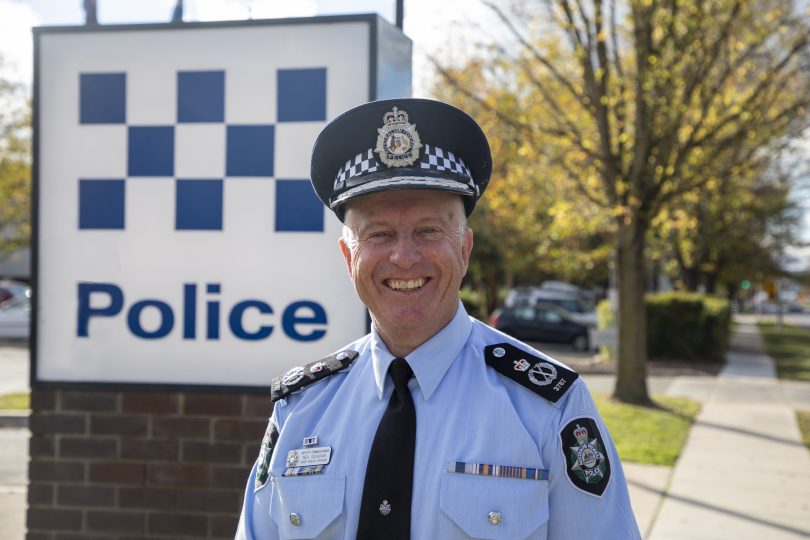
New CPO Neil Gaughan: “We need the community to trust us. Building trust is hard and it takes time.” Photo: Supplied.
The ACT’s new Chief Police Officer says that it can feel like some things never change in the ACT justice system. As the most senior officer in local policing, he’s in a position to know.
While CPO Neil Gaughan has worked elsewhere on counter-terrorism (and was, indeed, the senior officer who gave orders for last year’s raids on the ABC and journalist Annika Smethurst), his career started here in Canberra investigating traffic accidents.
Following former CPO Ray Johnson’s departure for the new Deputy Commissioner role at the ESA, it’s the first time in many years that an AFP Deputy Commissioner has been appointed to the top police role in the ACT. And while the new CPO knows what it’s like to operate at a national level, he’s also familiar with policing the beat from the Woden Station.
“Thirty years ago I was arresting family members that were young; now we’re arresting their grandkids,” he says of the local crime cycle.
He’s talking about a pattern that’s familiar to ACT police and media: the anecdotal evidence is that a significant proportion of Canberra’s criminal activity comes from a small, often inter-generational group.
The CPO says it’s frustrating because, on the whole, this is a law-abiding city.
“The group of people [committing crime] hasn’t changed. Talking to the troops, when they make an arrest our crime stats change because they’re not huge. If we take a recidivist car thief out, our car thefts stop.”
CPO Gaughan thinks we need to pay more attention to diverting young criminals, giving them vocational training and short-circuiting the criminal behaviour patterns. He acknowledges that the very wide divide in the ACT between the comfortable majority and those living in real hardship doesn’t help, but says he’s seen children from very well off families spiral into crime, too.
But the rate of recidivism across the criminal community means, he says, that “nobody has cracked this nut”.
“We need left-field thinking. I’ve seen in 36 years of policing that what we do is not working, even though it’s cheaper to divert people than to put them in the justice system.”
Those same decades of experience have positively disposed him towards restorative justice. One of his priorities is reaching out to the ACT’s Aboriginal and Torres Strait Islander communities, whose rates of incarceration are notably high, making up 22 per cent of our prison population.
He’s met with some elders already and is planning to do more to address the incarceration and recidivism rates, partly inspired by what he learned working on counter-terrorism operations for the AFP.
“I think that we, as a small jurisdiction, can take more risks than bigger jurisdictions,” he says.
“In de-radicalisation, we found that when we tried to put programs in, they didn’t work. It had to be led by the community and for the community.”
But that begs the question as to whether police culture in the ACT also has to change. CPO Gaughan says the question merits honest self-examination, across the whole Justice and Community Safety Directorate.
He acknowledges the existence of unconscious bias and flags the need for cultural awareness training as an ongoing priority.
He also concedes that the ACT police culture has typically not included a lot of public engagement and reflection. That’s long been a bone of contention: opaque communications with local media and the general population has created a sense of distrust that’s not conducive to good policing.
“When we can’t tell you something, we have to be upfront about why,” Commissioner Gaughan says. “There is always information we can’t pass on because, for example, the coroner says we can’t.
“But ask me a question, and I’ll tell you the answer without weasel words. I’ve been a cop for 36 years, I’m very happy to be here. Like any Chief Police Officer, there’s a fine line between politics and operations, but we will try to be more transparent and honest.”
Commissioner Gaughan is the fifth Chief Police Officer since 2013, so is there any guarantee that Gaughan will stay around and implement the changes we’ve discussed? He says yes, and that there’s a vision for where ACT Policing needs to go.
“When we do our surveys I want people to feel ACT policing is part of them. We need the community to trust us. Building trust is hard and it takes time.
“But when we do community surveys there is a lack of trust, and perception is reality. We can’t sit on our laurels and say we know better and won’t change anything.”












